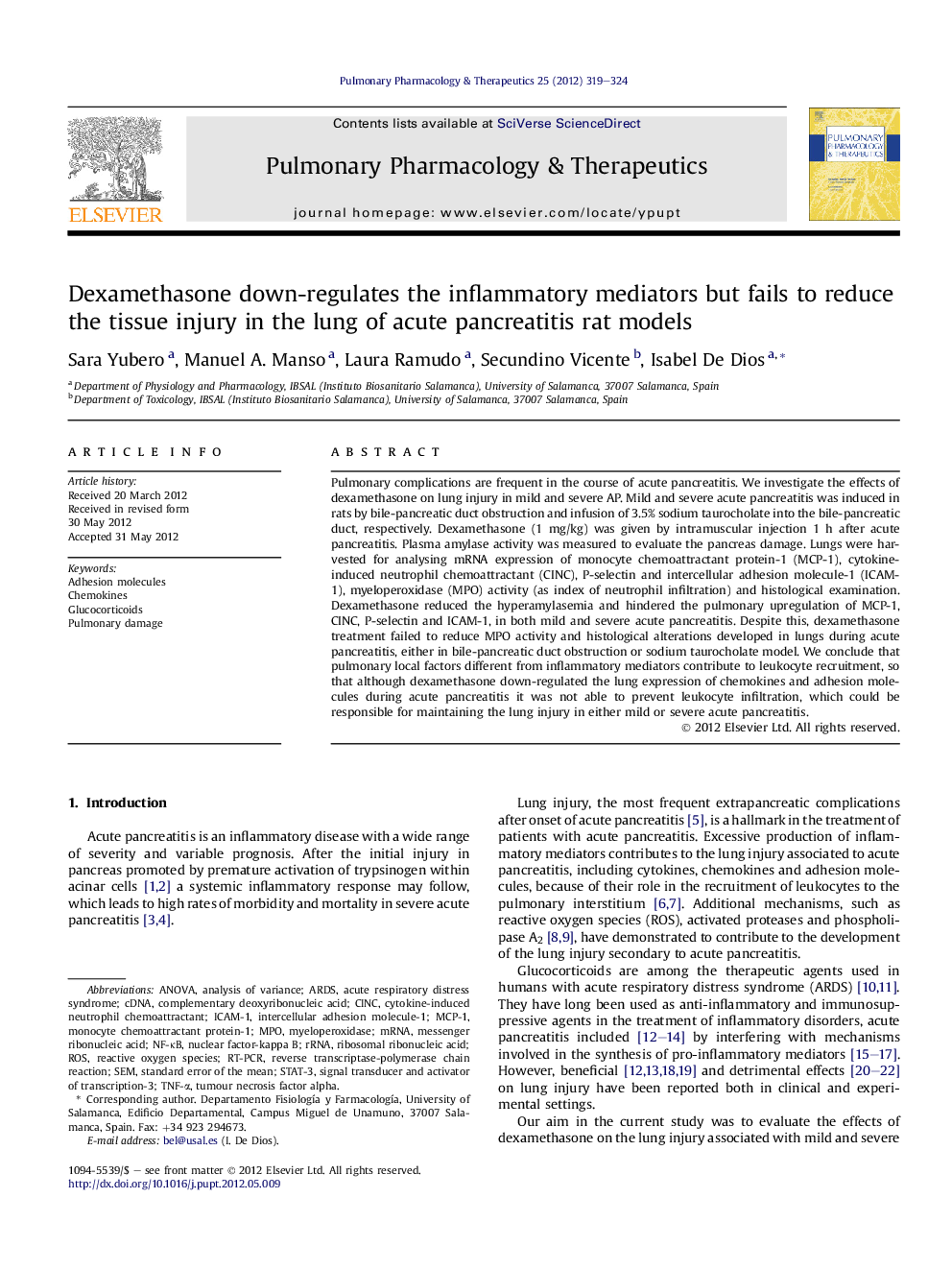| Article ID | Journal | Published Year | Pages | File Type |
|---|---|---|---|---|
| 2567126 | Pulmonary Pharmacology & Therapeutics | 2012 | 6 Pages |
Abstract
Pulmonary complications are frequent in the course of acute pancreatitis. We investigate the effects of dexamethasone on lung injury in mild and severe AP. Mild and severe acute pancreatitis was induced in rats by bile-pancreatic duct obstruction and infusion of 3.5% sodium taurocholate into the bile-pancreatic duct, respectively. Dexamethasone (1Â mg/kg) was given by intramuscular injection 1Â h after acute pancreatitis. Plasma amylase activity was measured to evaluate the pancreas damage. Lungs were harvested for analysing mRNA expression of monocyte chemoattractant protein-1 (MCP-1), cytokine-induced neutrophil chemoattractant (CINC), P-selectin and intercellular adhesion molecule-1 (ICAM-1), myeloperoxidase (MPO) activity (as index of neutrophil infiltration) and histological examination. Dexamethasone reduced the hyperamylasemia and hindered the pulmonary upregulation of MCP-1, CINC, P-selectin and ICAM-1, in both mild and severe acute pancreatitis. Despite this, dexamethasone treatment failed to reduce MPO activity and histological alterations developed in lungs during acute pancreatitis, either in bile-pancreatic duct obstruction or sodium taurocholate model. We conclude that pulmonary local factors different from inflammatory mediators contribute to leukocyte recruitment, so that although dexamethasone down-regulated the lung expression of chemokines and adhesion molecules during acute pancreatitis it was not able to prevent leukocyte infiltration, which could be responsible for maintaining the lung injury in either mild or severe acute pancreatitis.
Keywords
rRNANF-κBARDSSTAT-3mRNAMCP-1ICAM-1RT-PCRcDNAMPOROSpulmonary damagecomplementary deoxyribonucleic acidribosomal ribonucleic acidanalysis of varianceANOVAtumour necrosis factor alphastandard error of the meanmessenger ribonucleic acidAcute respiratory distress syndromecytokine-induced neutrophil chemoattractantTNF-αNuclear factor-kappa BSignal transducer and activator of transcription-3SEMintercellular adhesion molecule-1Adhesion moleculesmyeloperoxidaseReverse transcriptase-polymerase chain reactionmonocyte chemoattractant protein-1CINCChemokinesGlucocorticoidsReactive oxygen species
Related Topics
Health Sciences
Medicine and Dentistry
Pulmonary and Respiratory Medicine
Authors
Sara Yubero, Manuel A. Manso, Laura Ramudo, Secundino Vicente, Isabel De Dios,
